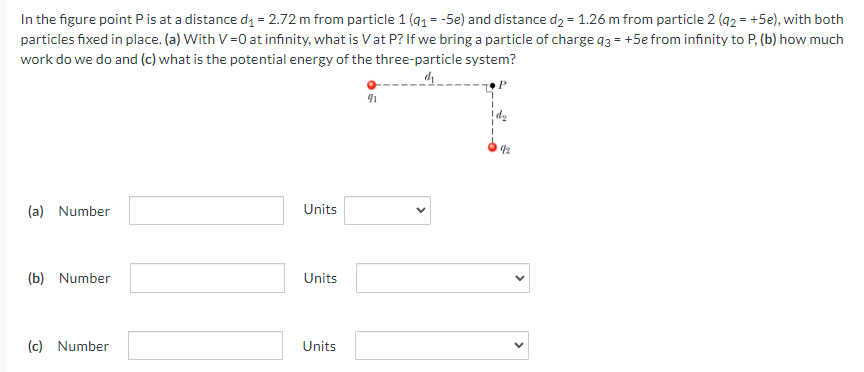In the figure point P is at a distance d1 = 2.72 m from particle 1(q1 = −5e) and distance d2 = 1.26 m from particle 2(q2 = +5e), with both particles fixed in place. (a) With V = 0 at infinity, what is V at P? If we bring a particle of charge q3 = +5e from infinity to P, (b) how much work do we do and (c) what is the potential energy of the three-particle system? (a) Number Units (b) Number Units (c) Number Units
